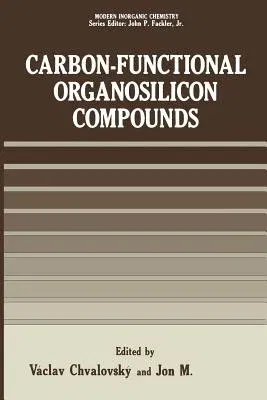Carbon-Functional Organosilicon Compounds (Softcover Reprint of the Original 1st 1984)Paperback - Softcover Reprint of the Original 1st 1984, 22 December 2012

Qty
1
Turbo
Ships in 2 - 3 days
In Stock
Free Delivery
Cash on Delivery
15 Days
Free Returns
Secure Checkout
Part of Series
Modern Inorganic Chemistry
Print Length
303 pages
Language
English
Publisher
Springer
Date Published
22 Dec 2012
ISBN-10
147570383X
ISBN-13
9781475703832
Description
Product Details
Book Edition:
Softcover Reprint of the Original 1st 1984
Book Format:
Paperback
Country of Origin:
NL
Date Published:
22 December 2012
Dimensions:
22.86 x
15.24 x
1.7 cm
ISBN-10:
147570383X
ISBN-13:
9781475703832
Language:
English
Location:
New York, NY
Pages:
303
Publisher:
Series:
Weight:
430.91 gm

